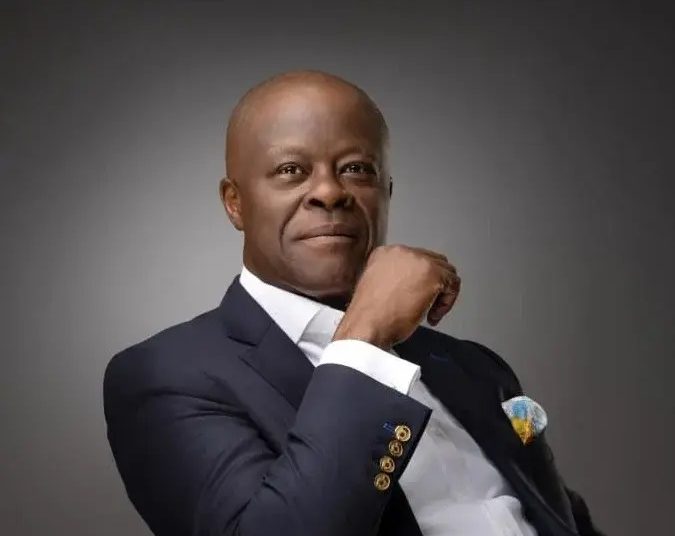Marrakech (Morocco), Oct. 15, 2023: Mr Wale Edun, the Minister of Finance and Coordinating Minister of the Economy, says domestic revenue mobilisation is a critical component of Nigeria’s long-term path to sustainable development finance.
Edun said this in Marrakech at the World Bank/International Monetary Fund (IMF) Annual Meetings.
He said that the notion was the outcome of the various discussions the Nigeria delegation to the meetings had with institutions such as the International Monetary and Finance Committee (IMFC), the International Finance Corporation, the Islamic Development Bank and the British Government.
The Nigerian delegation at the meeting also included the Governor of the Central Bank of Nigeria (CBN), Mr Yemi Cardoso, and the Permanent Secretary, Federal Ministry of Finance, Okokon Udo.
It also included the Director-General of Debt Management Office, Patience Oniha.
Edun emphasised the need for a robust framework that would enhance global liquidity for the purpose of settling balance of payments, fiscal crises and reducing the cost of borrowings.
He commended the G20 Roadmap, which provided a global framework on crypto assets regulation and supervision and urged that the implementation should be left with the Central Banks.
“In addition, during various plenary and bilateral meetings including World Bank, IFC, ERBD and International banks, we were encouraged that our reform efforts are being globally acknowledged and applauded.
“The reforms are widely recognised as capable of putting Nigeria on the path to economic recovery.
“We emphasised access to investment capital, particularly from the private sector and at a large scale; as well as the need to support private sector development,” he said.
He said that the aim of the Nigerian delegation was to secure the best bilateral and multilateral agreements that would directly impact the livelihoods of Nigerians.
“As I speak with you here today in Marrakech, I am fully aware of the difficulties our people are facing back home. Our key priority remains providing a better life for all Nigerians.
“This has already been outlined in President Bola Tinubu’s eight priority areas,” he said.
He listed the priority areas as driving inclusivity, creating jobs, tackling poverty, promoting food security, improving access to capital, improving security, ensuring fairness and rule of law, and discouraging corruption.
According to Edun, Nigeria’s economic story, though nuanced, is still directly tied to the economic story of Sub-Saharan Africa and more broadly to the economic story playing out around the world.
“At this week’s meeting, the IMF announced that for the second successive year, regional economic output will fall to 3.3 per cent in 2023 from four per cent in 2022.
“Global growth is projected to fall from 3.5 per cent in 2022 to 3.1 per cent in 2023 and 2024.
“Economic growth remains slow and uneven overall, and this is due to a series of unprecedented shocks, significant conflicts in numerous locations globally and slow international demand following the COVID-19 pandemic.
“These have resulted in sustained high interest rates to tackle soaring inflation, high borrowing costs, which make debt unaffordable, and investment challenging,” he said.
He said that the Nigerian economy was not immune to these global headwinds and the overall geo-political fragmentations.
The minister said that fiscal consolidation remained the preferred policy option for many countries, so that buffers could be built after long years of stimulus.
“Food and energy insecurity risks, rising poverty and inequality are key concerns, especially in low-income countries.
“At the IMFC meeting where I represented 22 Sub-Saharan countries, I highlighted that higher interest rates have amplified debt service burdens and capital flow reversals.
“I urged for continued multilateral cooperation to tackle debt challenges, which supports the G20 common framework and the Global Sovereign Debt Roundtable,” he said.
He urged the World Bank to remain focused on the twin goals of poverty eradication and shared prosperity, while enhancing its operating and financing models.
This according to him is so it can cope with increasing trans-border and global challenges and avoid needless trade-offs.














